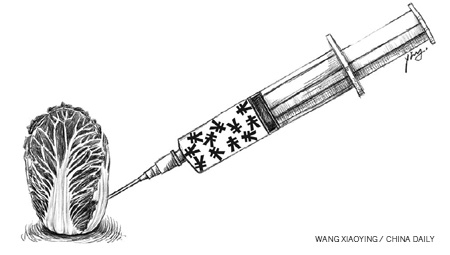Innovations that can ensure food security

Chinese farmers and consumers are feeling the impact of fluctuating food prices. But instead of relying on just a few crops, farmers in China should diversify the crops they grow. And policymakers and provincial governments should focus on strengthening local markets to ensure that farmers can sell their products to earn enough income to support their livelihoods.
Seventy percent of the world's food supply comes from just three grains - corn, wheat and rice - and 80 percent of our plant-based food intake comes from just 12 plant species - eight grains and four tubers. As markets fluctuate, climate change takes hold and the global population continues to grow, we need to find a recipe for increasing our resilience to these shocks.
Rising wheat prices are affecting the cost of other grains, dairy products and meat in China and the rest of the world. The extreme weather in recent years - excessive snow, droughts and floods - has been the worst in generations and affected the yields of farmers in China, as well as other countries in the region. This has caused the prices of noodles, cooking oil and other food products to rise sharply.















